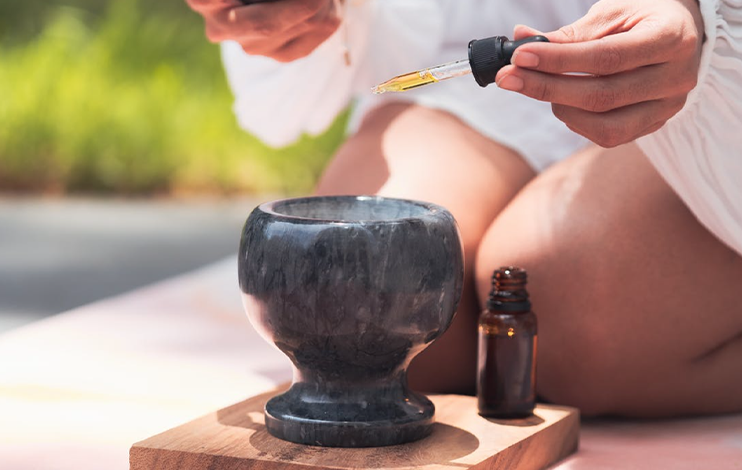The Israeli Ministry of Health has begun discussing the case of making CBD legal and calls on the public to submit positions on the issue.
Following the decision of the Israeli Minister of Health, Nitzan Horowitz, and the Director-General of the Ministry of Health, Prof. Nachman Ash, a CBD committee, headed by Prof. Shuki Shemerwas, recently established and began to examine the meanings of such an step.
“The mandate given to the committee is to examine the implications of removing the CBD component from the Dangerous Drugs Ordinance, so that it will be possible to market CBD products in Israel, with an emphasis on food products and cosmetics," the local Ministry of Health announced in a statement. The minister further stresses that “the committee does not discuss aspects of medical treatment through CBD, Or terms of the legalization of cannabis".
That is to say, they will debate on the CBD issue only as a food supplement. The main question that will probably be discussed by the committee is whether to exclude the CBD molecule itself from the Drugs Ordinance or allow a legal "Hemp" market, which will include any cannabis product containing less than 0.2%-0.3% THC.
The difference between the two is very significant because in the first case the CBD molecule, which has no psychoactive effects, will be legal as a food supplement and various products, while in the second case it will be possible to market products that also contain other cannabinoids in addition to THC. for instance, A "full-spectrum" CBD oil, meaning having a wide range of cannabinoids ("entourage effect") and not only CBD has been found in studies to have a better effect in relieving patients suffering from epilepsy compared to oil that contains CBD only.
On the other hand, there are Cannabinoids besides THC, which also have a psychoactive effect - for example, THCV, and therefore it is likely that there will be those in the Ministry of Health who will prefer to allow the marketing of the molecule CBD by itself. Another question that is expected to arise is whether only imports will be allowed, or local manufacturing will also be permitted.
As well as the inquiry of whether it will be possible for medical cannabis manufacturers in Israel to produce CBD products designated to the recreational market.
In any case, it is unlikely that the Ministry of Health will allow production and marketing as a food supplement of hemp inflorescences (cannabis with less than 0.3% THC), as occurs in Switzerland, Italy, Greece, and other countries in Europe.
It should be noted that about a year ago, in December 2020, the Health Committee had already discussed the issue of the exception of CBD from the Dangerous Drug Ordinance, but due to several reasons (mainly administrative), the process did not materialize. Many in Israel now hope that the current attempt will bear fruit.
An indictment has been filed against Oren Faraj, the manager of the Israeli cannabis farm"Univo",on suspicion of stealing 4.5kilos of cannabisinflorescences. Since the current indictment does not yet include drug dealing offenses, the judge released the suspect under house arrest. Questions that arise from the event: What werethe suspect's motives and what are the implications for the future of the farm's activities? Oren Faraj, manager of "Univo"'s cannabis farm and co-holder in 26% ownership of the company, had been recorded by security cameras as he takes bags of cannabis from the vault room and transfers them to his private vehicle.
The police originally suspected that Faraj, who is, in fact, the landowner of the plot in which the farm is located,allegedly handed the goods to another person, located in a neighboring village, that got arrested as well. However, this clause was removed from the indictment eventually, since the cannabis found in the neighboring village added up to "only" 620 grams - not close to the quantity that has been stolen from the farm. According to the indictment, "on 02/11/21 at 8:30 AM the suspect approached to one of the farmworkers and asked him to pack two bags of cannabis, weighing a pound each, and store them in the vault of the farm.
At 9:30 the suspect entered the vault while wearing gloves, picked up the bags which were placed in the room and contained cannabis weighing approximately 4.5 kg, put the packages inside a black bag, and moved the black bag to the next room. At 17:00 he took the bag out of the room, placed it inside a vehicle's trunk, and drove off.
During the police interrogation, the suspect admitted that indeed he took cannabis out of the farm's property, but he argued that the amount was only 2.5 kg and claimed that he threw the cannabis in the trash. The question of the motive for the alleged offense is very interesting since as far as is known the suspect is not short of money, so it is not clear why he should risk such a serious offense.
Another interesting question is what will be the fate of the farm's license since under Israeli law there is an obligation that the owner of the plot in which the agricultural business resides, in this case, Univo's cannabis farm, will own at least 26% of the business. Today, Univo company holds 51% ownership of the farm, Oren Faraj (the suspect) holds 26%, and the remaining 23% is held by "Avisror group". But in case that Faraj will be convicted, and if he will refuse to transfer his rights to Univo, it seems that Univo might have a problem with continuing running the Cannabis farm.
















Please complete your information below to login.
Sign In
Create New Account